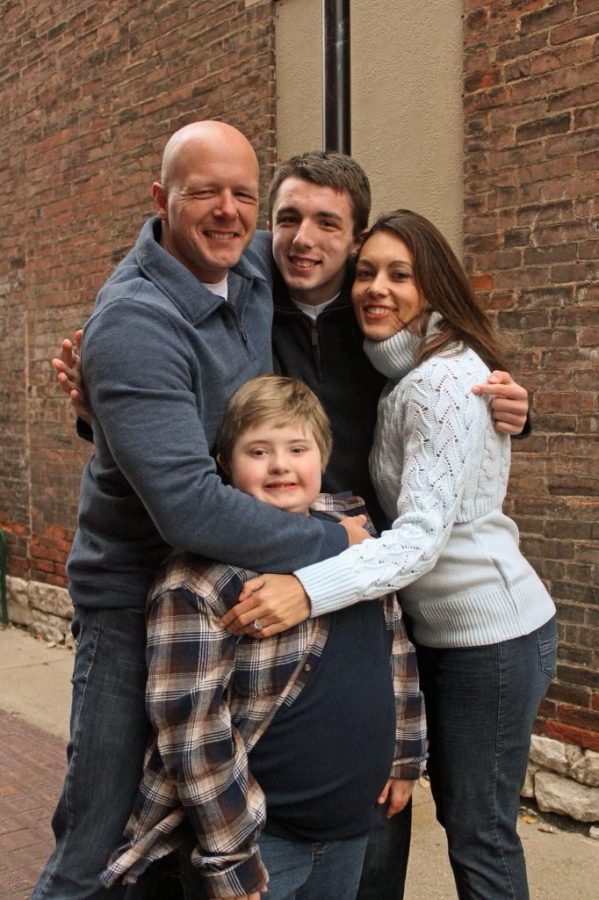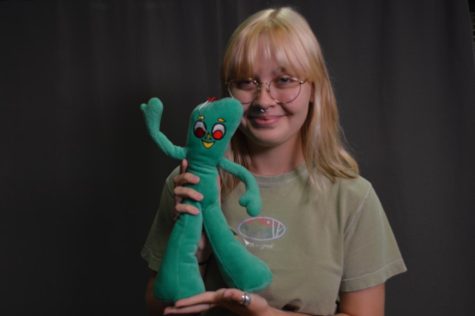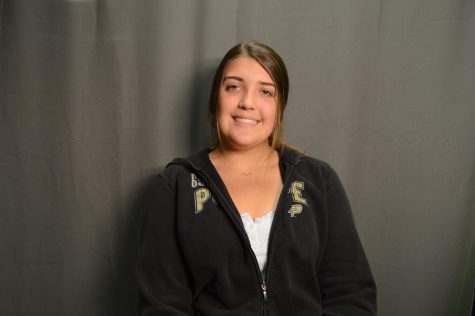The fight for equality: One NHS sophomore plans to change the world, one signature at a time
Tyler Ashby poses with father, mother, and younger brother for a family portrait. Click on the link below to sign his petition to fight for this cause.
May 19, 2021
The world today is an absolute mess — everybody is on edge and it seems as if one thing after another goes wrong. With the ongoing COVID-19 pandemic, people are left to question their daily life and how it has been impacted by the pandemic. For one NHS Sophomore, Tyler Ashby, the one issue that seemed to loom over his head was minimum wage.
While this unhinged world only continues to grow more and more chaotic, Ashby strives to turn a wrong into its long overdue right. And so, he is working to establish awareness through a petition to solve the issue presented by Section 14(c) of the Fair Labor Standards Act, which states that employers can pay employees with disabilities less than the minimum wage simply due to their disability.
Ashby was inspired to start this change by a family member who is bound to be affected by this issue later on in his life if no change is made.
“I have a little brother with Down syndrome and so I’m a little bit more aware about the problems going on in the disability community and what discrimination [people with disabilities] face than the average person,” Ashby said, “[In fact,] my friends didn’t even know that this was a law.”
However, Ashby’s relationship with his brother isn’t different from any other sibling relationship.
“We’re brothers [so] we fight and pick on each other, but at the end of the day, we love each other and I want what’s best for him — what’s going to get him far in life,” Ashby said.
With the economic crisis that COVID-19 has caused, minimum wage has become an issue that is being discussed more than ever.
“Minimum wage is a subject that’s on a lot of people’s minds and it’s [very prevalent] within the media, so [I figured] I might as well put in my two cents. At the very least, [I want to] let people know about this [and ideally] get it fixed,” Ashby said.
Ellie Payne, a longtime friend of Ashby, who is a member of the NHS Best Buddies Program as well as a member of the NHS Leadership Chapter, attests to the capability of students who have disabilities here at NHS.
“These students are getting real world job experience both in school and in the community. When they enter the workforce they will be well prepared and should be met with a more inclusive world for those with attributions.
Payne says this is an issue that she is admittedly very passionate about, and that was the reason she supports Ashby’s petition.
“I signed and shared Tyler’s petition because it is, and has always been, time to include those with [intellectual and developmental disabilities] both with equal pay and in all other aspects of life and society,” Payne said.
Rylin Rodgers, the Director of Public Policy at the Association of University Centers on Disabilities (AUCD), works with Congress to advance policies to meet the needs of people with disabilities and their families. Rodgers sees this issue as more than just an unfair wage gap.
“Often our biases and assumptions may lead to a false expectation about how a disability may prevent someone from participating in competitive integrated employment, [but] I believe paying people with disabilities sub-minimum wage is a human rights violation,” Rodgers said.
For Ashby, dealing with the biases and assumptions people make about his brother is an experience he has unfortunately had to deal with.
“I get very angry [when people stereotype my brother] but I try to understand that maybe they’re just not educated,” Ashby said.
Although some may believe that Ashby is simply too young to tackle such a large issue, Rodgers disagrees.
“There is no age requirement to stand up for human and civil rights, and there is no age requirement for changing the world,” Rodgers said.
Ashby says that it has been difficult to reach out to his local congressional representatives and receive helpful responses.
“When I started the petition, I emailed Victoria Spartz, Mike Braun, and Todd Young — not the most welcoming [responses],” Ashby said, “Victoria Spartz just sent back a couple of sentences; it [felt] like an automated response,” Ashby said.
However underwhelming those responses may have been, Payne continues to believe that this generation — Generation Z — is the right generation to push for such changes as this one.
“In my opinion, our generation is one of the most passionate and capable of our time and by starting important changes now, we are ensuring a better future for our adult selves; I know that with the backing of NHS and Noblesville as a whole, Tyler’s petition will reach and rise above,” Payne said.





